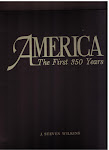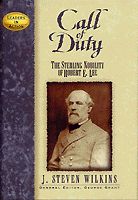By
Nov. 4 Californians have the option to subsidize high speed rail through the heart of the state. Prop 1A would deliver 9.95 billion in bonds for a plan to be constructed in the next 10-20 years.
The rail is repeatedly described as a solution to (presumably human caused) Global Warming, but 31,000 American scientists have signed a petition stating that there is no “convincing scientific evidence” that human release of greenhouse gasses is causing the earth’s surface to heat. http://www.oism.org/pproject/
Critics question whether tax money should be apportioned when
Sponsored by Nicole Parra (D)
The proposed rail would span 800 miles, connecting LA, the Central Valley and the Bay Area, with future additions to include Sand Diego and
Pros and Cons
Prop 1A is supported by Congressman Jim Costa, (D)
Costa claims that the project will create hundreds of thousands of jobs, and bring in twice what it costs.
Spokesman Greg Larsen of yesonprop1a.com, says HSR will relieve congestion, cutting the need to expand freeways and airports. “If you add a lane to the freeway today that's a short fix. Installing a high-speed rail throughout
The proposition’s opponents include California Chamber of Commerce and Taxpayers organizations, who say this is unaffordable for a state mired in financial crisis. Jon Coupal, President of Howard Jarvis Taxpayers Assoc. says the rail is destined to cost far more than advertised. “Proponents themselves admit this is a minimum of a $40 billion project.” Coupal told me.
Coupal points out those 1A proponents have already missed the September 1 deadline for having a business plan. “So voters are being asked to spend, in essence $20 billion, (with bond interest) on a project that doesn't even have a business plan yet.”
Howard Jarvis Assoc. released a study along with the Reason Foundation to analyze the true cost of Prop 1A. The 200 page report, available at Reason.org, was created in part by a past president of The American High-Speed Rail Association. The conclusion: This particular project is not ready for prime time.
“We are not necessarily opposed all high-speed rail proposals,” Coupal stated, “but this one is lacking on the details of how much it’s going to cost.” A Reason Foundation press release warns that, “The final price tag for the complete high-speed rail system will actually be $65 to $81 billion, according to the Reason Foundation report.”
The projected savings are based on optimum amount of riders. But the HSR line in the nation’s most heavily populated area;
We recommend you vote NO on prop 1A.






























































2 comments:
It's not the governments place to be creating jobs, and a nearly bankrupt state doesn't have the money for such an unnecessary thing. It would make things easier, and seems like it could be a good thing someday, but not right now. Vote No.
Watching the light rail plan foisted upon us here in Washington, against the voice of the voters, has been interesting. As per expectations, over projected costs, longer time in build, and ridership likely below initial projections, in part due to ridiculous design of the system from the start. I've watched several areas take on rail projects, most against voter's expressed wishes, none worked as promised, all have exceeded projected costs, none are as user friendly as should be. Funny thing, the corporation behind the design and promotion of all those of which I am aware seems to exist solely for the purpose of planning and promoting these boondoggles, and working round the proper political channels to force them on the people who then must pay for them. I wonder if this same outfit is behind this project. Amazing they are proposing a 220 mph rail system (along the lines of Japann's Bullet, I presume) and running it on existing freight lines. Anyone who knows rail at all will know this cannot work. California's passenger rail system already runs on those rails, and doesn't work well. Build yet another? Are they nuts, or do they simply think the voters are? And none of this touches the fact that it is not the purview of government to be in the transportaion business. Let private enterprise, motivated by profit, serve the public thus. One more instance of government as saviour. I do hope it fails..... wish I could vote to help that way.
Post a Comment